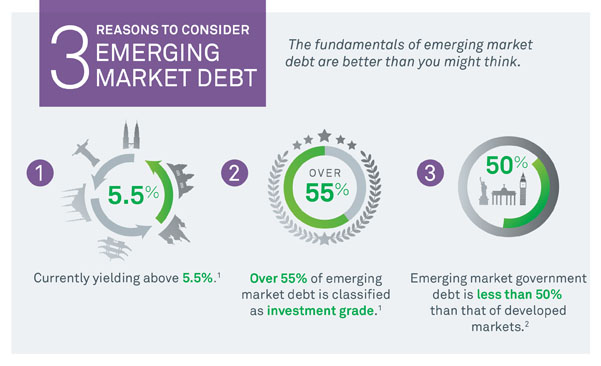
Before you can buy stock on the stock exchange, it is important to understand the market. This includes a basic understanding of how companies, speculators, and bankers operate. This article will explain how the different roles impact on the prices of various stocks. If you are able understand the roles, you will be able take advantage of market conditions in a way that is most favorable to you.
Companies
Stock exchanges have a significant role in the global financial markets. They provide liquidity to investors as well as shareholders. Stock exchanges can be used to raise funds, or to sell shares. Stock exchanges usually require companies to adhere to strict regulations. In order to be listed on an stock exchange, companies must meet minimum standards. They must also register with the U.S. Securities and Exchange Commission and have a certain number outstanding shares. Nasdaq is the largest stock exchange worldwide. It will soon require that all companies have at minimum one woman.

Speculators
Speculators are an investor that seeks to make money from fluctuations in stock markets. They employ a range of strategies to maximize their profits and rely on tips, rumors, as much as their own intuitions and analysis. Speculators drive many businesses. They raise capital for new businesses and assist struggling industries with raising cash. They do have to take risks and can suffer losses that could exceed their initial investment.
Bankers
Why not use the stock exchange for bankers when starting an investment company? There are a number of advantages to doing so. First, banks are naturally attracted to the capital markets, particularly if they're in financial services. Secondly, bankers can build a strong portfolio of stock options. Last but not the least, the exchange offers an opportunity for you to make some money. Bankers will find a host of benefits in Listed Companies.
Traders
Stock traders use the stock trade to make money buying and trading shares of companies. These traders use technical analysis to analyze price patterns and movements. These traders seek to profit from short-term gains by purchasing and selling stocks. These traders usually fall under one of the following three categories. These traders could be individuals, companies, institutions, and/or businesses. These traders are just a few examples. You can read on to find out more about their investment methods in the stock market.

Investing
A stock exchange is one way you can gain an advantage in stock market investing. A stock market is a market where companies are chopped up, and individual investors can participate in the growth of the company by purchasing a minority stake in it. Alejandro Nieto estimates that the stock markets are the best way to make a profit without putting all your money at risk. The stock market can be a great way to make a lot of money, but you need to ensure that the risks are worth it.
FAQ
How do you choose the right investment company for me?
You should look for one that offers competitive fees, high-quality management, and a diversified portfolio. Fees are typically charged based on the type of security held in your account. While some companies do not charge any fees for cash holding, others charge a flat fee per annum regardless of how much you deposit. Others charge a percentage based on your total assets.
You should also find out what kind of performance history they have. If a company has a poor track record, it may not be the right fit for your needs. Avoid companies that have low net asset valuation (NAV) or high volatility NAVs.
It is also important to examine their investment philosophy. Investment companies should be prepared to take on more risk in order to earn higher returns. If they're unwilling to take these risks, they might not be capable of meeting your expectations.
How are shares prices determined?
The share price is set by investors who are looking for a return on investment. They want to make profits from the company. They buy shares at a fixed price. Investors make more profit if the share price rises. If the share price falls, then the investor loses money.
An investor's main goal is to make the most money possible. This is why they invest. It helps them to earn lots of money.
What Is a Stock Exchange?
A stock exchange allows companies to sell shares of the company. This allows investors to buy into the company. The market sets the price of the share. The market usually determines the price of the share based on what people will pay for it.
Companies can also get money from investors via the stock exchange. Companies can get money from investors to grow. Investors purchase shares in the company. Companies use their funds to fund projects and expand their business.
Stock exchanges can offer many types of shares. Some of these shares are called ordinary shares. These shares are the most widely traded. These are the most common type of shares. They can be purchased and sold on an open market. Shares are traded at prices determined by supply and demand.
Other types of shares include preferred shares and debt securities. When dividends are paid, preferred shares have priority over all other shares. If a company issues bonds, they must repay them.
How Does Inflation Affect the Stock Market?
The stock market is affected by inflation because investors need to pay for goods and services with dollars that are worth less each year. As prices rise, stocks fall. It is important that you always purchase shares when they are at their lowest price.
Statistics
- The S&P 500 has grown about 10.5% per year since its establishment in the 1920s. (investopedia.com)
- Ratchet down that 10% if you don't yet have a healthy emergency fund and 10% to 15% of your income funneled into a retirement savings account. (nerdwallet.com)
- Our focus on Main Street investors reflects the fact that American households own $38 trillion worth of equities, more than 59 percent of the U.S. equity market either directly or indirectly through mutual funds, retirement accounts, and other investments. (sec.gov)
- For instance, an individual or entity that owns 100,000 shares of a company with one million outstanding shares would have a 10% ownership stake. (investopedia.com)
External Links
How To
How to open and manage a trading account
First, open a brokerage account. There are many brokers on the market, all offering different services. Some charge fees while others do not. Etrade is the most well-known brokerage.
Once you have opened your account, it is time to decide what type of account you want. These are the options you should choose:
-
Individual Retirement Accounts (IRAs).
-
Roth Individual Retirement Accounts
-
401(k)s
-
403(b)s
-
SIMPLE IRAs
-
SEP IRAs
-
SIMPLE 401(k).
Each option offers different benefits. IRA accounts have tax benefits but require more paperwork. Roth IRAs permit investors to deduct contributions out of their taxable income. However these funds cannot be used for withdrawals. SIMPLE IRAs are similar to SEP IRAs except that they can be funded with matching funds from employers. SIMPLE IRAs have a simple setup and are easy to maintain. They enable employees to contribute before taxes and allow employers to match their contributions.
Finally, determine how much capital you would like to invest. This is the initial deposit. Most brokers will give you a range of deposits based on your desired return. Based on your desired return, you could receive between $5,000 and $10,000. This range includes a conservative approach and a risky one.
After deciding on the type of account you want, you need to decide how much money you want to be invested. You must invest a minimum amount with each broker. These minimums vary between brokers, so check with each one to determine their minimums.
After deciding the type of account and the amount of money you want to invest, you must select a broker. Before you choose a broker, consider the following:
-
Fees-Ensure that fees are transparent and reasonable. Brokers will often offer rebates or free trades to cover up fees. Some brokers will increase their fees once you have made your first trade. Avoid any broker that tries to get you to pay extra fees.
-
Customer service – You want customer service representatives who know their products well and can quickly answer your questions.
-
Security – Choose a broker offering security features like multisignature technology and 2-factor authentication.
-
Mobile apps - Make sure you check if your broker has mobile apps that allow you to access your portfolio from anywhere with your smartphone.
-
Social media presence. Find out whether the broker has a strong social media presence. If they don’t have one, it could be time to move.
-
Technology – Does the broker use cutting edge technology? Is it easy to use the trading platform? Are there any issues when using the platform?
Once you have selected a broker to work with, you need an account. Some brokers offer free trials. Others charge a small amount to get started. Once you sign up, confirm your email address, telephone number, and password. Next, you will be asked for personal information like your name, birth date, and social security number. You will then need to prove your identity.
After you have been verified, you will start receiving emails from your brokerage firm. It's important to read these emails carefully because they contain important information about your account. These emails will inform you about the assets that you can sell and which types of transactions you have available. You also learn the fees involved. Track any special promotions your broker sends. You might be eligible for contests, referral bonuses, or even free trades.
The next step is to create an online bank account. Opening an account online is normally done via a third-party website, such as TradeStation. Both of these websites are great for beginners. You will need to enter your full name, address and phone number in order to open an account. After this information has been submitted, you will be given an activation number. To log in to your account or complete the process, use this code.
Now that you have an account, you can begin investing.